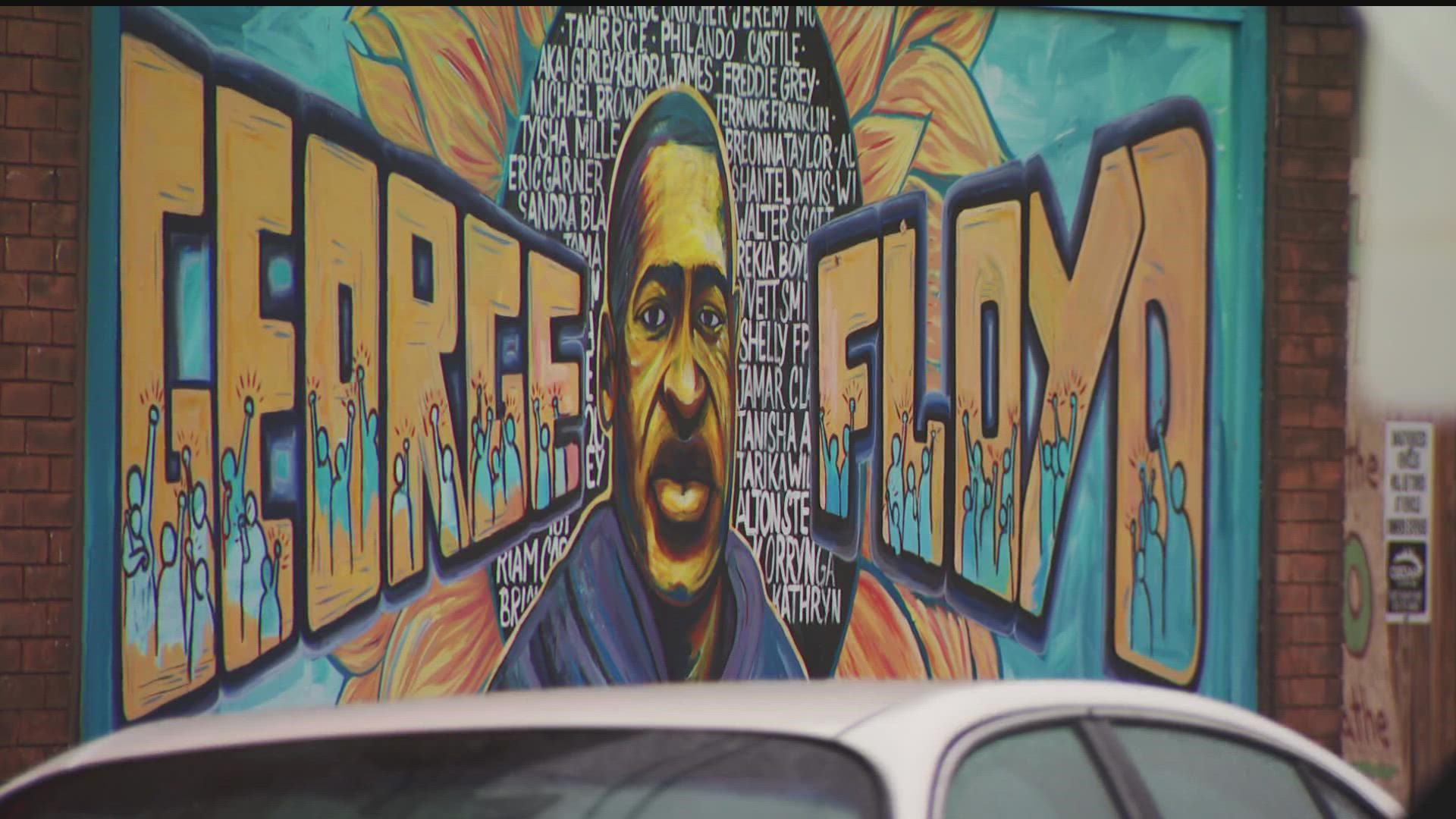MINNEAPOLIS — They say time is relative and perhaps the two years since George Floyd's murder speaks directly to that.
"It feels like just yesterday and forever ago," said Acooa Ellis, Senior Vice President of Community Impact for the Greater Twin Cities United Way.
Nine minutes and twenty-nine seconds for many has translated into two years of time spent confronting the issues of racism.
"There was an uptick in conversation, a lot of vigilance, a lot of urgency around doing something in multiple spaces across the county," said Ellis.
Amid what some have referred to as a period of racial reckoning.
"I think we've had a racial awakening where it's been harder to ignore what a lot of people live with on a daily basis, and have been trying to explain to their friends and peers," explained Ellis.
But for Ellis, the real racial reckoning is in the "Why."
"Why the things that we're working to address, exist in the first place," said Ellis. She went on to say, "and along with the answers to that, assessing, 'What is my role or what power do I have before me?' And its not just about positional authority. What power do I have within my disposal to be a part of the change required?"
Something Dr. Rachel Hardeman, founder of the University of Minnesota's Center for Antiracism Research and Health Equity is dedicating her time to seeing through.
"When we go to work, when we're talking to our family members, when we are accessing healthcare, inequities in racism are built into the system and we have to understand that, and we have to be brave enough to call it out and to be willing to do something about it," said Dr. Hardeman.
These ideas have been met with a lot of pushback in various forms over the last two years, from racist rants in area schools to violent attacks on communities of color.
"We're dealing with 400 years of oppression, so when we think about even policing and what that's meant as part of our society, we're talking about a deep history of the ways that we've created mechanisms to control certain people in certain communities," explained Dr. Hardeman. She went on to say, "so as we move forward and make progress, sort of pushing back on that, and creating equity and building safe spaces, you're always going to see a backlash."
Backlash which community leaders say must be met with a will to want to be the change, over time.
"If we're thinking about what we need to be doing right now, at this two-year anniversary mark, it's really thinking about how do we create policy that keeps people safe," said Dr. Hardeman. She went on to explain, "We are at a point where we've seen a lot of, you know, police reform bill passed at the state and at the local levels after you know George Floyds murder, we've seen comprehensive reform be put forth at a federal level but then it hasn't passed."
"Those who want to see change, they've got to be stronger and more boisterous in their desires to see something different," said Ellis.
There have been a number of meaningful changes over the last two years in response to George Floyd's murder at the local level.
Both Minneapolis and St. Paul have resources in place to respond to non-violent emergency calls that don't involve police in situations where community crisis workers are better suited.
For more on what's being done in this push for change and racial reckoning, with Acooa Ellis click here.

